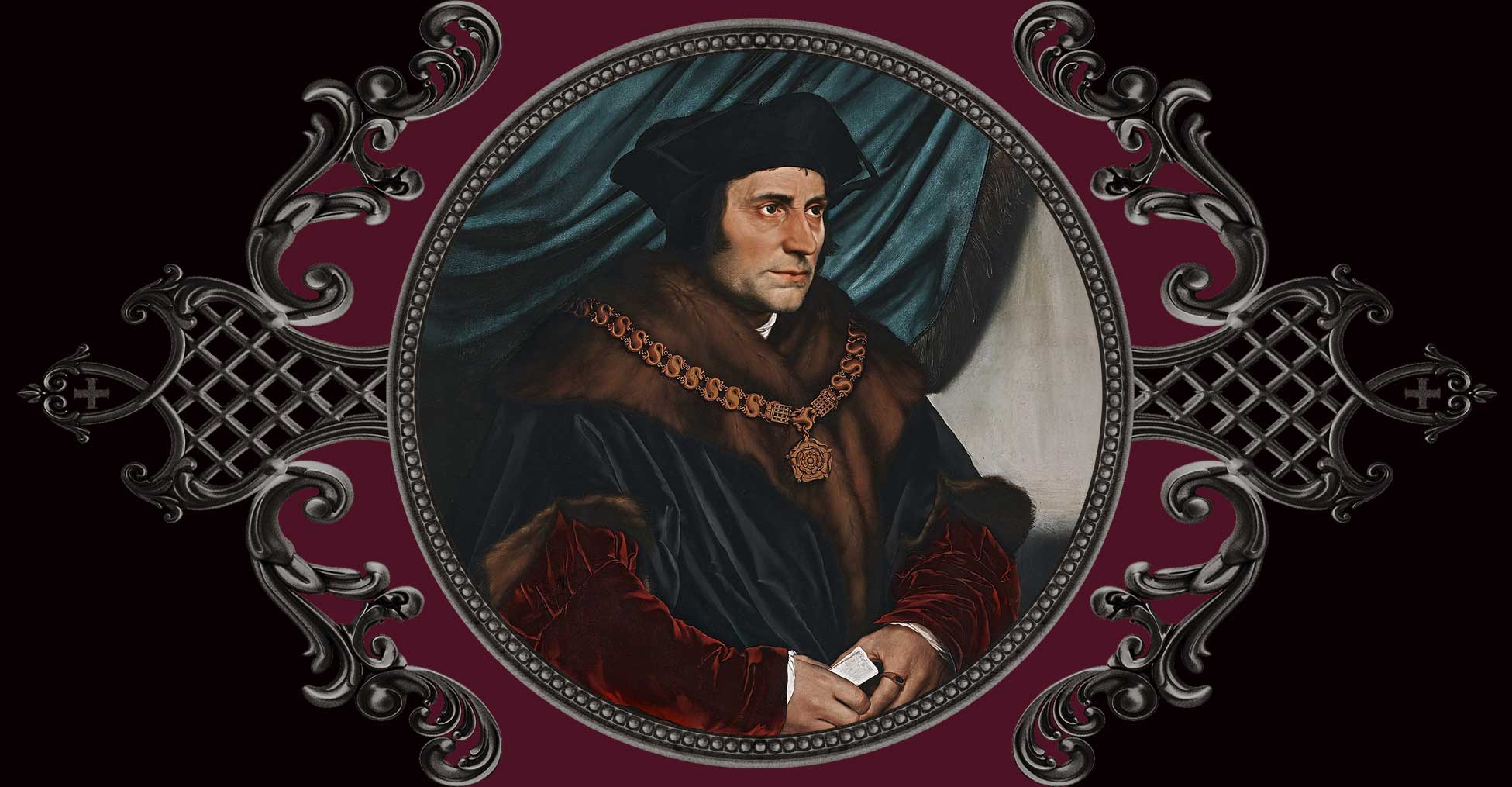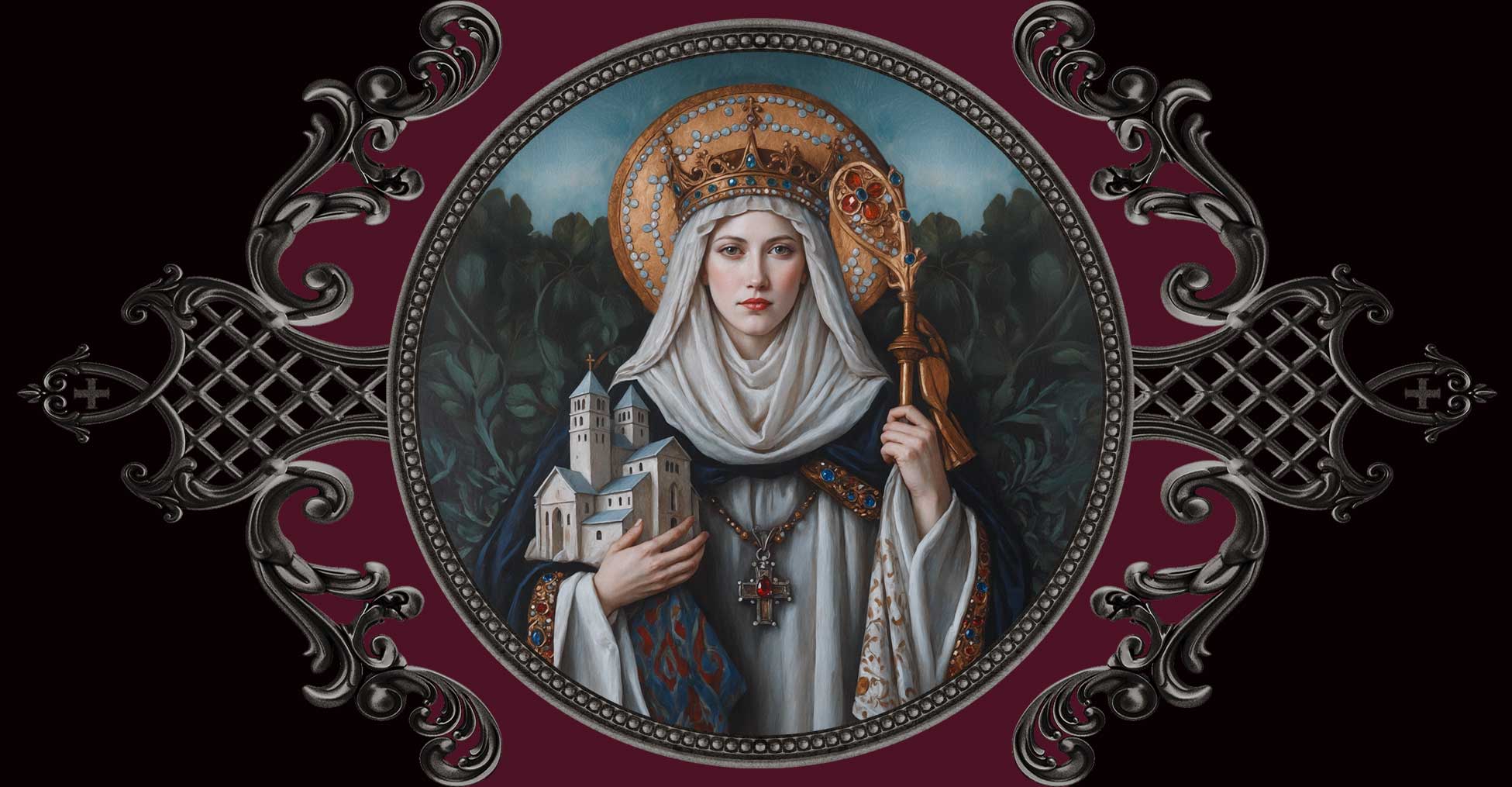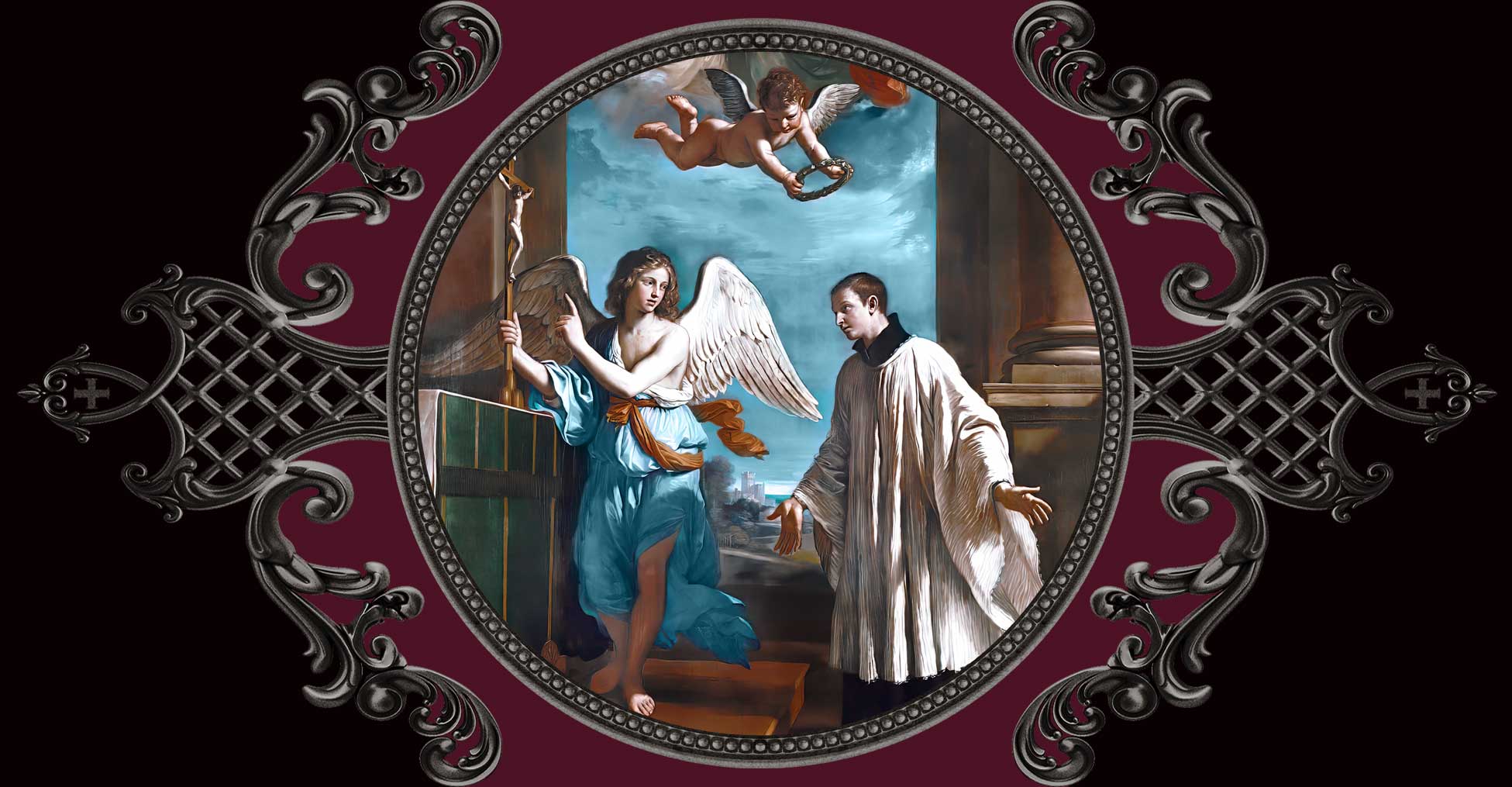
June 22 + Saint Thomas More
Sir Thomas More was an English lawyer, social philosopher, author, statesman, and noted Renaissance humanist. He was also a councillor to King Henry VIII, and Lord High Chancellor of England from October 1529 to May 1532. He wrote Utopia, published in 1516, about the political system of an imaginary, ideal island nation.
But his belief that no lay ruler has jurisdiction over the Church of Christ cost Thomas his life. Thomas steadfastly refused to approve King Henry VIII’s divorce and remarriage and the establishment of the Church of England — the first protestant church. (Protestant means that which is protesting the Catholic Church.)
Described as “a man for all seasons,” Thomas was a literary scholar, eminent lawyer, gentleman, and father of four children. He was an intensely spiritual man and would not support the king’s divorce from Catherine of Aragon in order to marry Anne Boleyn. Nor would he acknowledge Henry as supreme head of the Church in England, breaking with Rome, and denying the pope as head.
Thomas was committed to the Tower of London to await trial for treason. After refusing to take the Oath of Supremacy, he was convicted of treason and beheaded. Of his execution, he said: "I die the King's good servant, and God's first."
In the year 2000, Pope John Paul II named him patron of political leaders. The supreme diplomat and counselor, he did not compromise his own moral values in order to please the king, knowing that true allegiance to authority is not blind acceptance of everything that authority wants. King Henry himself realized this and tried desperately to win his chancellor to his side because he knew Thomas was a man whose approval counted, a man whose personal integrity no one questioned. But when Thomas resigned as chancellor, unable to approve the two matters that meant most to Henry, the king had to get rid of him.



Leave a comment
This site is protected by hCaptcha and the hCaptcha Privacy Policy and Terms of Service apply.